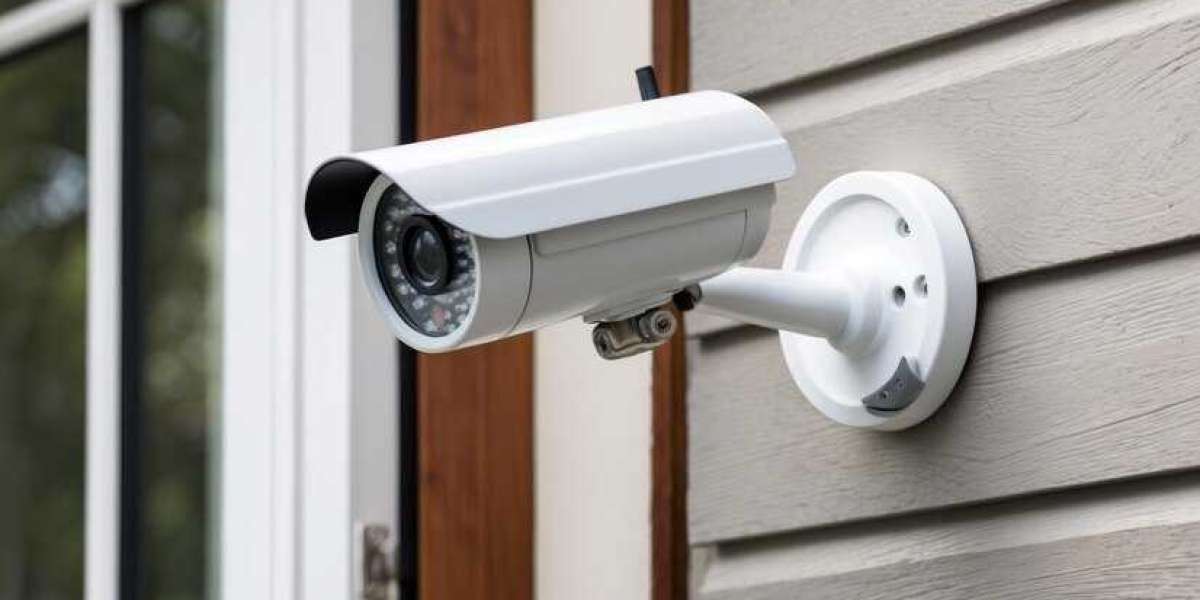Security camera systems are a crucial element of any safety strategy, whether you’re securing a home, business, or construction site. With an array of options on the market, selecting the right system can feel overwhelming. This guide will help you understand the key elements, focusing on different system sizes, technologies like coax security cameras, and the decision-making process between systems with varying camera counts, such as 4-camera and 8-camera setups.
What is a Coax Security Camera?
A coax security camera is a traditional type of security camera that transmits video signals over a coaxial cable. These cameras have been around for decades and are commonly used in both residential and commercial security systems. While newer technologies like IP cameras are growing in popularity, coax cameras still hold a place in the security industry, especially for those looking to upgrade older systems.
Coax cameras have evolved from their analog roots and now come in high-definition options, offering video clarity that rivals many digital cameras. One of the major benefits of coax security cameras is their reliability; coaxial cables are known for maintaining strong signal quality over long distances without degradation. This makes them a viable option for large properties or expansive outdoor areas.
The Benefits of an 8-Camera Security System
For larger properties or those who want comprehensive coverage, an 8-camera security system is a good option. With eight cameras strategically placed around your home or business, you can monitor all the key areas at once. These systems allow for wide-ranging visibility, giving you peace of mind that every angle is covered.
An 8-camera security system is particularly beneficial for:
- Large homes or businesses: If you need to monitor several entry points, parking areas, and public spaces, the coverage of eight cameras ensures no blind spots.
- Outdoor and indoor monitoring: A system this size gives you the flexibility to place cameras both inside and outside, ensuring all areas are covered.
- Scalability: Many systems allow for adding more cameras if your security needs expand in the future.
When choosing an 8-camera system, make sure to consider the areas that need protection and how much video storage the system can handle. Eight cameras can generate a lot of footage, so ensure the system's DVR (digital video recorder) or NVR (network video recorder) has ample capacity for storing high-quality video recordings.
When a 4-Camera Security System is Enough
While an 8-camera system might be necessary for large properties, many homes and small businesses find a 4-camera security system to be more than adequate. A 4-camera setup is ideal for smaller spaces or properties that need focused coverage on key entry points and sensitive areas.
Here are some scenarios where a 4-camera security system might be the right choice:
- Small homes or apartments: If you're primarily concerned with monitoring entry points like doors and windows, a 4-camera system provides enough coverage without unnecessary excess.
- Limited outdoor space: For properties with a small yard or patio, fewer cameras will suffice in keeping your perimeter secure.
- Budget-conscious security: A 4-camera system can be a cost-effective way to achieve basic security coverage without overspending. Many modern 4-camera systems still offer high-quality video and essential features such as night vision and motion detection.
Although a 4-camera system covers less ground than an 8-camera setup, modern systems often come with features like wide-angle lenses and remote pan/tilt capabilities, allowing you to monitor larger areas with fewer cameras.
Choosing Between Coax and Digital Systems
As you consider which security camera system to install, one major decision is whether to opt for a coax-based system or a digital (IP) system. Both options have their strengths, and the right choice will depend on factors like your property size, desired video quality, and installation preferences.
Advantages of Coax Security Cameras
- Long-distance transmission: Coaxial cables can send signals over longer distances without signal loss, making them ideal for large properties or areas with wide perimeters.
- Reliability: Coaxial technology has been around for years and is known for its dependability, especially in outdoor environments with fluctuating weather conditions.
- Lower cost: While newer IP cameras tend to be more expensive, coax systems can be more affordable, particularly if you're upgrading an existing system.
Benefits of Digital IP Cameras
- Higher video quality: IP cameras generally offer better video resolution, with some capable of 4K quality, which can be a significant upgrade for anyone looking for clearer footage.
- Advanced features: Digital systems often come with features like remote access, intelligent video analytics, and easy scalability through wireless connections.
- Future-proofing: IP systems are newer and more likely to support the latest technological advances, making them a better long-term investment for some.
Professional Installation vs. DIY Setup
One of the biggest decisions when purchasing a security camera system is whether to install it yourself or hire a professional. This decision largely depends on the type of system you're purchasing and your comfort level with installation.
DIY Installation
Many modern security systems are designed with user-friendly installation in mind. Wireless or wired systems can often be set up in a few hours with basic tools. DIY installation can save you money and give you more control over the positioning of cameras.
However, coax security camera systems typically require more advanced installation, as they involve running coaxial cables through walls, which may not be as straightforward for the average homeowner. If you’re not comfortable with this, hiring a professional might be the best choice.
Professional Installation
For larger systems like an 8-camera security system, professional installation is often the better route. A professional installer will have experience running wires, positioning cameras for optimal coverage, and ensuring the system is configured correctly.
Hiring a professional can also save time and ensure the system is set up for maximum efficiency, particularly in more complex setups like those using both indoor and outdoor cameras or integrating existing coaxial infrastructure.
Conclusion: Finding the Right Security Camera System
Choosing the right security camera system boils down to understanding your specific needs. Whether you're considering a coax security camera for its reliability and long-distance capabilities or deciding between an 8-camera security system for expansive coverage and a 4-camera system for focused monitoring, there are plenty of options to explore.
For those unsure where to start, consulting a security expert or a reputable provider like Backstreet Surveillance can help you tailor a solution that fits your property, ensuring peace of mind for the long term. By weighing the pros and cons of different technologies and system sizes, you'll be able to make an informed choice that keeps your home or business secure.








